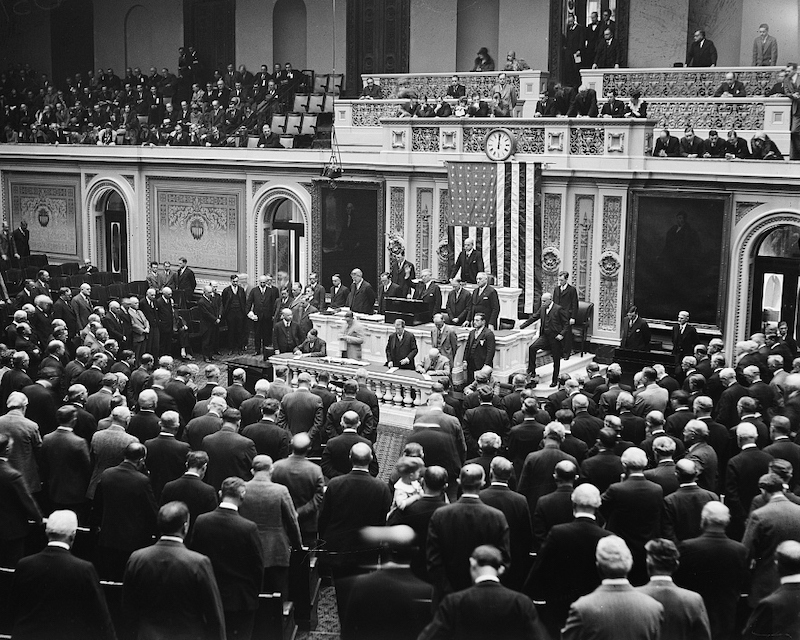Today’s blog is an edited excerpt from the introduction to TAH’s CDC volume, Congress, edited by Joseph Postell, available in our bookstore for free download or purchase.

What’s wrong with our Congress? Judging by its approval ratings over the past decade, Congress has lost the support of the American people. Once considered to be the great American contribution to constitutional government—being governed by our own consent through elected, representative lawmakers—Congress is now the most disliked part of our political system. Over the past decade, Congress has not once reached a 30 percent approval rating or above. . . .
The causes of Congress’s decline are numerous, but understanding these causes requires careful attention to intricate rules and procedures that are little-known, and rarely the subject of careful reporting. The public, as a result, typically doesn’t understand how Congress actually works. It knows that something is wrong with our legislative branch, but it doesn’t know what happened. . . .
The Nature of Representation: Delegates or Trustees?
The documents in this book address the three broad questions that are the most critical to understanding and evaluating Congress. The first question is the nature of representation in the American political system. This debate was largely the focus of, and was largely resolved by, the debate between the Federalists and Anti-Federalists. . . .
This debate was not simply a historical debate about representation. It addressed a fundamental question about what kind of representation works best. Should representatives act as delegates who mirror their constituents, or should they act as trustees, voting for what they think is right regardless of their constituents’ views? In other words, is liberty endangered by a government of elites, who ignore their constituents, or by a government that is too democratic, with majority tyranny? This debate continues today, as Americans debate whether they are ruled by an out-of-touch “Washington Establishment,” of which (some argue) Congress is a central part.
Once the Constitution was ratified, this debate over the nature of representation receded into the background. (However, Progressives in the early twentieth century returned to the idea of a more direct democracy, and were successful in making Congress more democratic).
Parties and the Structure of Power in Congress
Because the Constitution was vague about the rules and procedures that should govern the House and the Senate, two additional issues have influenced the development of Congress to the present day. Thus a second question these readings seek to address is Congress’s internal organization. The Constitution does not specify how the rules of Congress are to be set up; it merely says that each House shall make its own rules. But the manner in which the rules are set up determines who wields the power in Congress.
Thus, many of the primary sources after the ratification of the Constitution concern various rules governing debate, which bills can be sent to the floor, what powers the committees will have, and so forth. These rules allocate power among various people in Congress—such as the leadership, the majority party as a whole, the committee chairs, etc. In terms of the distribution of power in Congress, there have essentially been four distinct periods with four distinct approaches. . . .
In examining these periods of Congress’s history, we are challenged to consider the merits and demerits of each model of Congress. . . . While seemingly arcane, the rules are critical to American constitutionalism because they affect the responsiveness, the efficiency, and ultimately the willingness of the Congress to use its legislative powers and therefore to preserve our republican form of government.
The Decline of Congress and the Rise of the President
The third and final theme in these documents, also debated consistently from the First Congress to today, has to do with Congress’s external relationship to the president. . . .

. . . Should Congress, the elected legislature, be the primary maker of policy through the writing of specific laws? Or should the president, the national representative, be the most important domestic policymaker, with Congress granting discretion to the executive branch controlled by the president?
In the early years of the American republic, Congress acted as James Madison predicted when he said it would be an “impetuous vortex.” It wrote laws very carefully, addressing all of the details, so that the executive was merely carrying out its will. The president had total control over administrative officials, but those officials had little authority to make their own decisions. Their hands were tied by the law.
More recently, the president has emerged as a national policymaker because Congress has delegated more power and discretion to the executive branch. It has tried to keep control over these delegations, through things like legislative vetoes, but these have proven relatively ineffective.
The same trend has occurred in foreign policy. Although presidents routinely involved the nation in military conflicts, without declarations of war by Congress, the nature of these conflicts changed in the twentieth century. Now, presidents involve the nation in major military actions without declarations of war. Congress has attempted to reclaim the power to declare war, but this too has proven ineffective.
Congress and the American Experiment
The American Founders famously committed themselves to an experiment to see if a nation could govern itself through the consent of the governed. This was a relatively new phenomenon at the time the nation was founded. We often take it for granted today. But the decline of public esteem for Congress should be cause for serious concern. If we do not understand how consent of the governed works, and how it should work, we risk losing it.
Teachers and their students have a critical role to play, therefore, in sustaining self-government by studying how it works in our Congress. Through careful examination of the principles and ideas in these documents, we become better informed, and gain greater understanding, of how to make consent of the governed effective in the twenty-first century. Congress was once the great achievement of the American Constitution. A knowledgeable and engaged citizenry can make it so again.

